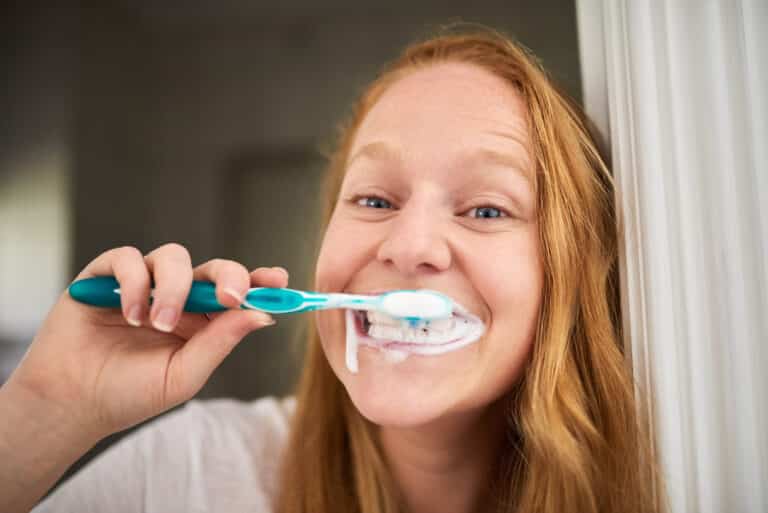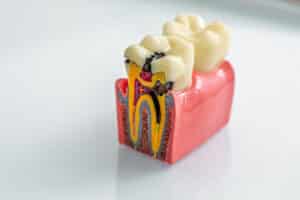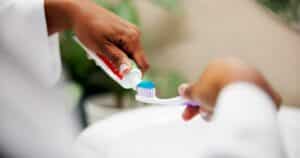Is It Bad to Brush Your Teeth Too Much?
The simple answer is yes. While brushing is essential for oral health, aggressive or excessive brushing can damage your teeth and gums. Understanding the right balance is key to maintaining a healthy smile.
Symptoms of Over Brushing Teeth
Here are common signs that you might be brushing too hard or too frequently:
- Sensitive Teeth: If your teeth hurt after brushing, especially to hot or cold temperatures
- Receding Gums: Gum tissue pulling back, exposing more of the tooth
- Worn Enamel: Teeth appearing more yellow or transparent
- Bleeding Gums: Especially during or after brushing
- Tooth Root Exposure: Leading to increased sensitivity
Can You Over Brush Your Teeth? Understanding the Impact
Over-brushing is a serious concern that can lead to multiple dental issues. When you brush too aggressively or too frequently, you risk wearing down your tooth enamel, which is the protective outer layer of your teeth.
This can lead to gum recession, where the gum tissue gradually pulls away from the teeth. As a result, you may experience increased tooth sensitivity, particularly to hot and cold temperatures. The exposure of tooth roots can also occur, making your teeth more vulnerable to decay and sensitivity.
Additionally, excessive brushing can actually increase your risk of developing cavities, as weakened enamel provides less protection against bacteria.
Tips for Proper Brushing Technique
To avoid these issues while maintaining good oral hygiene, follow these guidelines:
- Use the Right Tools:
- Soft-bristled toothbrush
- Fluoride toothpaste
- Replace your toothbrush every 3-4 months
- Perfect Your Technique:
- Hold brush at a 45-degree angle
- Use gentle, circular motions
- Spend 2 minutes brushing
- Don’t scrub back and forth aggressively
- Timing Matters:
- Brush twice daily
- Wait 30 minutes after eating acidic foods
- Don’t brush more than three times per day
Solutions for Recovery
If you’re experiencing symptoms of over-brushing:
- Switch to an Ultra-Soft Toothbrush
- Consider using sensitive toothpaste
- Focus on gentle brushing techniques
- Use a fluoride rinse to strengthen enamel
- Monitor your brushing pressure
When to Seek Professional Help
If you experience persistent tooth sensitivity, noticeable gum recession, increasing tooth discoloration, or continuous discomfort while brushing, it’s important to schedule an appointment with your dentist.
These symptoms could indicate significant damage from over-brushing and may require professional intervention to prevent further deterioration of your oral health.
The Role of Electric Toothbrushes
Electric toothbrushes have revolutionized the way we approach dental care at home.
Many modern models now include pressure sensors that alert you when you’re applying too much force while brushing. These technological advances make electric toothbrushes valuable tools for maintaining proper brushing technique and preventing over-brushing.
The built-in timers and specialized brushing modes can also help ensure you’re cleaning your teeth effectively without causing damage.
Prevention is Key
The best approach to oral health combines proper technique with regular professional care.
At Verber Dental East, we’re committed to helping you maintain optimal oral health through education and preventive care.
Ready to ensure you’re using the right brushing technique? Schedule an appointment with our experienced team today. We’ll evaluate your brushing habits and provide personalized recommendations for your oral health needs.
Click here to schedule your appointment, or call our office to speak with our friendly staff. Let’s work together to protect your smile while maintaining excellent oral hygiene!
Remember: Good oral health isn’t about brushing harder or more frequently – it’s about brushing smarter. At Verber Dental East, we’re here to help you achieve and maintain your healthiest smile.




